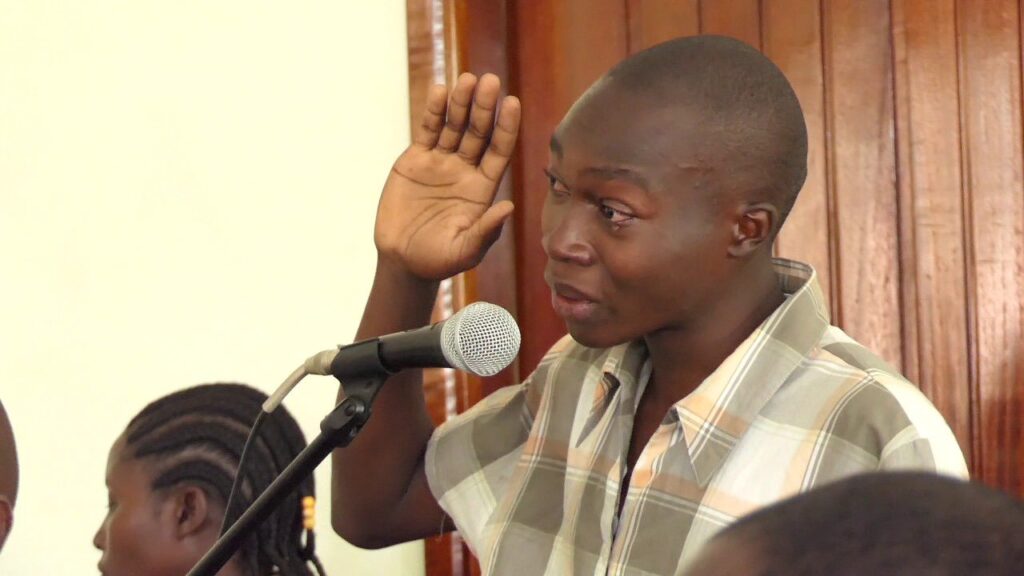
A 21-year-old Ugandan TikTok creator, Emmanuel Nabugodi, has been sentenced to 32 months in prison after being found guilty of insulting President Yoweri Museveni through a viral video. Nabugodi, known for sharing comedy content with his 20,000 followers, pleaded guilty last week to four charges, including hate speech and spreading malicious information about the president. His conviction marks the latest in a series of legal actions targeting social media users in Uganda for posts critical of the government.
The video in question, which Nabugodi posted on TikTok, featured a mock trial of President Museveni. In the video, he called for the president’s public flogging, a statement that was deemed offensive by Ugandan authorities. The court, led by Chief Magistrate Stellah Maris Amabilis, sentenced Nabugodi to more than two and a half years in prison, stating that the sentence was intended to serve as a deterrent to others using social media to attack individuals, including public figures like President Museveni.
“This court hopes that by the time the convict leaves prison, he would have learned that abusing people in the name of getting content is bad,” Amabilis said during the sentencing on Monday. The magistrate also noted that Nabugodi had shown no remorse for his actions, which played a role in the severity of the sentence. However, Nabugodi was given the right to appeal the ruling within 14 days.
The case highlights the ongoing crackdown on freedom of speech in Uganda, particularly when it comes to criticism of the long-serving president, who has been in power since 1986. Rights groups have frequently criticized the Ugandan government for its increasing restrictions on free expression, with many alleging that the authorities use legal and extrajudicial means to silence dissent.
Nabugodi’s case is part of a broader trend in Uganda where social media users face severe legal consequences for posts deemed critical of the government. In July, Edward Awebwa, another TikTok user, was sentenced to six years in prison for a similar offense, while three others are awaiting trial for content shared on the app. These actions come amid a climate of growing concern about the erosion of civil liberties in Uganda.
Nabugodi was convicted under a 2022 amendment to Uganda’s Computer Misuse Act, which made it illegal to “write, send, or share any information through a computer that is likely to ridicule, degrade, or demean another person, group of persons, a tribe, an ethnicity, a religion or gender.” Critics argue that this law has been used to intimidate internet users who criticize government policies or high-ranking officials.
Human rights organizations have consistently denounced the Ugandan government’s use of the law to suppress free speech. The U.S. State Department’s 2022 human rights report on Uganda highlighted how the authorities have used the Computer Misuse Act to curb online dissent and silence critics of government policies. The report noted that the law, along with other repressive measures, has contributed to a growing climate of fear for internet users in the country.
The case of Emmanuel Nabugodi also recalls the high-profile case of Kakwenza Rukirabashaija, an award-winning Ugandan author who was charged in 2022 with two counts of “offensive communication” after making unflattering remarks about President Museveni and his son on Twitter. Rukirabashaija was tortured during his month-long detention before fleeing the country to Germany, where he sought asylum. His case attracted international attention, with human rights organizations condemning the Ugandan government’s treatment of dissenting voices.
As the Ugandan government tightens its grip on social media platforms, the legal actions against individuals like Nabugodi signal an increasingly hostile environment for free expression. Social media has become a powerful tool for people, especially younger generations, to voice their opinions and critique the government, but the risks associated with such activities are growing. With President Museveni’s administration showing little tolerance for criticism, the legal landscape for social media users in Uganda is becoming more perilous.
For Nabugodi and others like him, the consequences of speaking out are becoming more severe, as the government intensifies its crackdown on online dissent. The question remains whether this aggressive approach will stifle free speech or inspire further resistance from Ugandans who are determined to express their views in the face of mounting repression.
In the wake of Nabugodi’s sentencing, the international community will likely continue to scrutinize Uganda’s human rights record and the continued erosion of freedoms under President Museveni’s rule. For many in Uganda, the case serves as a grim reminder of the risks involved in speaking truth to power in a country where dissent is often met with harsh penalties.






